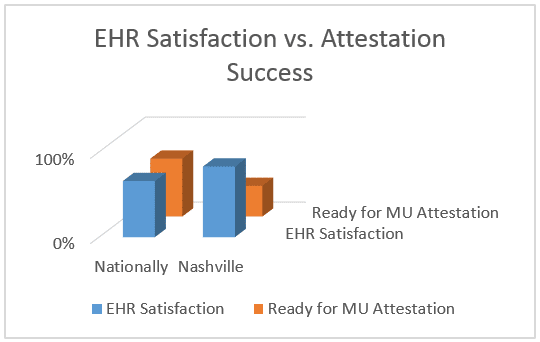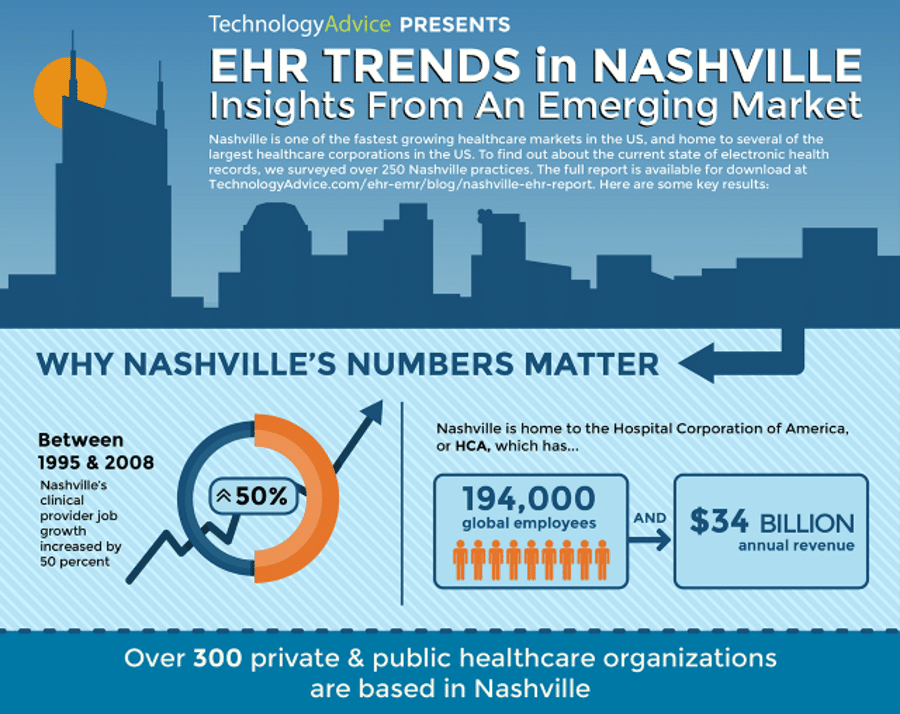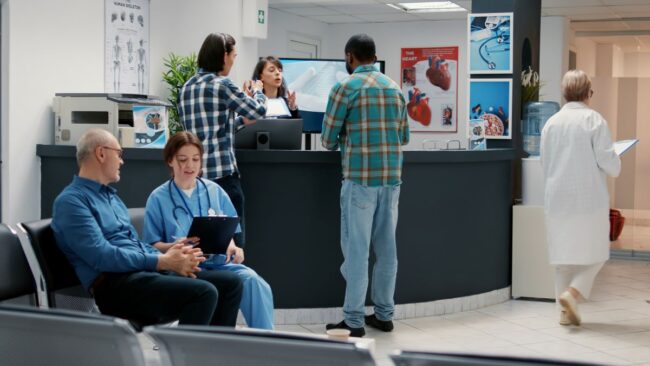Nashville is home to several of the largest healthcare organizations in the US and one of the fastest growing healthcare markets. Therefore, it’s natural to compare the healthcare market here to the country as a whole, particularly in regards to which EHRs are being used, overall adoption, and attestation success rates for Meaningful Use. Nationally, the top three EHRs in use are Epic, eClinicalWorks, and Allscripts. However, despite Epic being the most prevalent EHR in the country, Epic is far from making the top five EHRs list locally in Nashville.
The study referenced above asked the question, “Are providers happy with their EHR?” Nashville out-shined the national statistics with 80% of the Nashville doctors reporting that they are happy with their EHR, while only 60% of the doctors are happy at a national level. If Nashville providers are generally happy with their EHR, why are only 35% of Nashville providers ready to attest to the Meaningful Use requirements? Nationally, 68% of providers are ready for attestation.
 One unanswered question is what is missing in the local EHR market that is preventing providers from meeting the Meaningful Use requirements set by CMS if they are content with the EHRs in use? 2015 is the first year that healthcare organizations and independent practices will face penalties if they fail to meet the national Meaningful Use requirements. Is the issue related to ease of use? Adequate training and template customization by specialty? Effective leadership and communication?
One unanswered question is what is missing in the local EHR market that is preventing providers from meeting the Meaningful Use requirements set by CMS if they are content with the EHRs in use? 2015 is the first year that healthcare organizations and independent practices will face penalties if they fail to meet the national Meaningful Use requirements. Is the issue related to ease of use? Adequate training and template customization by specialty? Effective leadership and communication?
How can we help prepare providers to successfully attest while facing requirements that change and increase annually? With physicians operating in multiple environments, is the high variability of systems or templates getting in the way? In order for our local Nashville practices to adequately prepare and avoid these penalties, we have seen physician involvement and engagement make an impactful difference in adoption and attestation success rates. But why is physician engagement important?
Implementing an EHR without physician engagement is like trying to build a custom home without the input of the homeowners. The architect, like a project manager, knows what elements have to be included in the plans for a home; however, he knows nothing about homeowners’ preferences or intended use of the home without their input. An architect knows a house will have bedrooms, bathrooms with plumbing, living spaces, and a kitchen, but the contractor won’t know to connect the two children’s room with a bathroom in between or that the laundry room needs to include a pet shower for their beloved dog, Fluffy, unless these items are included in the architecture plans.
Practices can implement an off-the-shelf EHR that has all the components to meet the requirements of Meaningful Use. Without the involvement of physicians early and throughout the process, it is unlikely that the EHR will be configured to complement the daily activity flow or specific needs depending on specialty, patient demographics, and personal documentation preferences during the clinical episode. Choosing to implement an EHR makes a practice eligible to attest for Meaningful Use; however, it in no way guarantees adoption or success, as evidenced by the statistics of providers who have an HER, but are not ready to attest. Physician involvement and engagement is critical to close that gap, both in Nashville and nationally.




